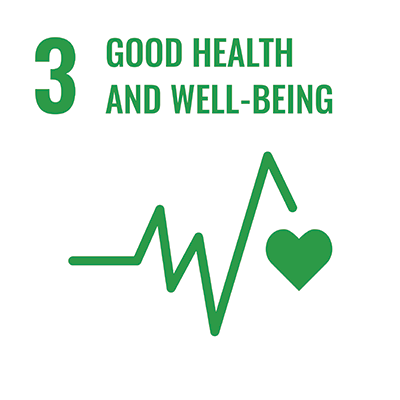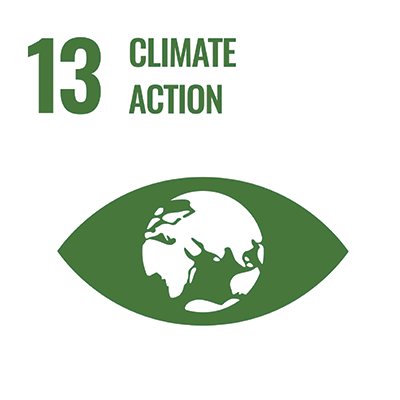Our work with the UN Goals
Many Vital Paths Towards Sustainability
Our sustainability efforts are long-term, and connecting our operations to the United Nations Sustainable Development Goals puts Jacobi exactly where we belong – right at the heart of progress.

The Charter of the United Nations became effective on October 24, 1945. Headquarters are located in New York, USA, but the building site has extraterritorial status. It was designed by a multinational team of architects and completed in 1951.
We want to make practices sustainable and ensure that Jacobi’s operations have as little impact on the planet as possible, whilst also improving people’s lives wherever we can.
One of the ways we’ve managed to make sure our practices are truly sustainable is by aligning them with the United Nations 17 Sustainable Development Goals. The idea is that working towards the completion of these goals means working towards peace and prosperity for our planet and people, for now and in the future. The goals cover a wide variety of aspects of sustainability, including climate change, eliminating poverty and hunger, reducing all inequality, preserving our oceans and improving education for all, to name just a few.
“We want to be connected to these goals,” said CEO Remko Goudappel. “We’re aligned with the goals. Both countries and companies must be developed with a sustainable future. You must take care of resources, be innovative for today and the future and look after your people. This is very similar to our own beliefs. The goals embrace sustainability for countries and we embrace sustainability for our company.”
“It gives purpose to the company,” he continued. “It’s not simply about making money.”

Remko Goudappel, CEO Jacobi Group
Jacobi has taken an in-depth look at the 17 UN goals and their targets, deciding which ones to work towards as part of our operational actions. Thus, Jacobi’s long-term sustainability work has been divided into three sections: People, Product, and Planet. This is how they interact with the sustainable development goals:
PEOPLE
Ensure healthy lives and ensure well-being for all at all ages
Several of our practices align with this particular goal. For example, we encourage sports and exercise for our employees and offer free fruit in many of our factories. During the Corona virus crisis we set our EMEA employees an exercise challenge to help get them moving and staying healthy. As well as promoting good health amongst our employees, we also encourage sports for local children in the areas where we have factories by arranging tournaments, sponsoring teams and donating equipment.
We also place a heavy focus on safety at work for our employees and ensure our people undergo in-depth training and drills.

Ensure inclusive and equitable quality education and promote lifelong learning opportunities for all
At Jacobi we believe education is a human right and we encourage learning wherever possible. We recently began building a primary school in Sri Lanka, where we have a factory, which will vastly improve the quality of education for the local children. Elsewhere we have helped students by donating books, equipment and uniforms.
We offer various types of training, both for our office and factory teams. Some of our training is working towards professional development, but we also offer training that will help people outside of work too.

Achieve gender equality and empower all women and girls
In some of the countries we operate, gender equality is not an obvious consideration and in these places we are keen to support women and girls. We hold Women’s Days and ensure we start from the bottom up, by giving girls the exact same opportunities as boys.

Promote sustained, inclusive and sustainable economic growth, full and productive employment and decent work for all
Many of our own goals related to our people fall under this goal from the UN. We strive to ensure everyone, no matter whether they work in our factories or offices, is fulfilled in their employment with Jacobi. Our people are our most important asset and we concentrate our efforts on ensuring everyone is happy and safe at work.

PRODUCT
Build resilient infrastructure, promote inclusive and sustainable industrialisation and foster innovation
Jacobi produces carbon in several countries where the GDP is fairly low and our operations help towards expanding industry and provide incomes for local people. It’s vital, though, that our work is as sustainable as it can possibly be and so we continually report on several key factors. All plants report back on waste and consumption, meaning we can monitor these and put together plans to reduce or reuse them wherever possible.
Our Research and Development teams are continually working towards finding new ways of operating that will help us ensure that our effects on the planet are positive. We are also constantly developing new products that will help us, and our customers, operate more sustainably.

PLANET
Ensure sustainable consumption and production patterns
It’s vital that we carefully consider our consumption of resources and ensure that we produce our carbon in the most sustainable way possible. We employ various initiatives that contribute to this particular goal. For example, one of our reactivation plants switched over from diesel powered forklift trucks to electric ones, avoiding the unnecessary use of fossil fuels. Wherever we can, we capture excess energy and recycle it, either to be used in our own processes, for use by local people, or both.
Where possible, we encourage our customers to recycle their spent carbon, by offering a full recycling service. This prevents the unnecessary production of more activated carbon. Finally, we also use coconut shell to create activated carbon and this coconut shell is actually a byproduct of coconuts that would already be grown for multiple other uses.

Take urgent action to combat climate change and its impacts
At Jacobi we believe we’re all responsible for tackling climate change and have put in place several initiatives to do this. For example, helping to prevent the burning of fossil fuels when it’s not necessary by switching to electrical forklifts and using surplus heat to generate clean electricity. We want to ensure our people are educated about climate change and are empowered and encouraged to make the right decisions in their everyday lives. Things like our cycling to work schemes help us to do this.
As long as we are in operation we will continue to strive to meet these goals. We plan to add even more activities, actions and projects to expand our sustainability practices and help us progress through our sustainability journey over the coming years.
If you want to read more detailed run-downs of our activities, take a look at our Sustainability Hub (jacobi.net/sustainability-journey) where you’ll find more of our sustainability stories.

50 years of sustainable development
In 1972, an International Conference on the Problems of the Human Environment was held in Stockholm. It was attended by representatives of the 113 member states and members of the UN’s specialised agencies. The 26 principles of the Stockholm Declaration became the start of a dialogue between industrialised and developing countries on pollution, economic growth, and people’s well-being. In 1992, 179 countries met in Rio de Janeiro to focus on the impact of human socio-economic activities on the environment.
At the United Nations summit in the year 2000, all 191 member states adopted the UN Millennium Declaration with goals to be reached by 2015. Among the key achievements of the Millennium Development Goals (MDGs) were a drop in child mortality by almost 50%, more than one billion people lifted out of extreme poverty, and 40% fewer infections of HIV/AIDS.
Many global threats including poverty, illiteracy, deforestation, and sea pollution are yet to be solved, and in 2015 all UN member states agreed on 17 Sustainable Development Goals (SDGs) to finish this vital work. Implementation is supervised by the United Nations Development Programme (UNDP) under Agenda 2030. The goals will stimulate action in five areas of critical importance for the future: People, Planet, Prosperity, Peace and Partnership.

